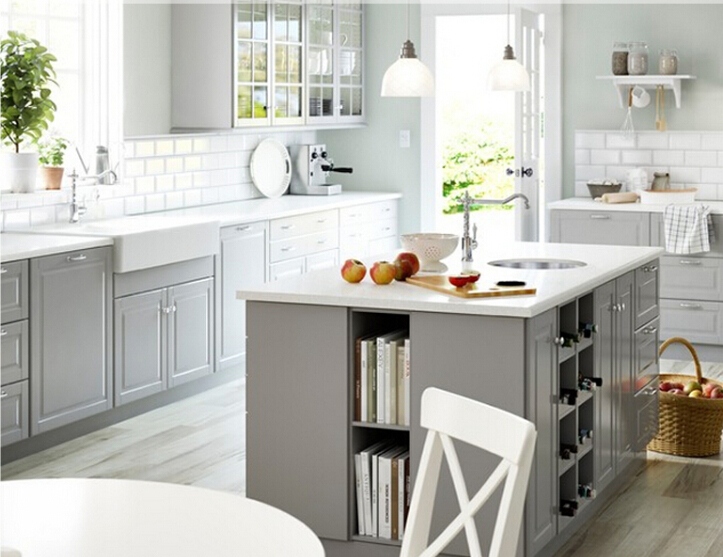
Choosing the right material for countertops and surfaces is crucial in interior design and construction projects. Quartz stone, granite, and marble are three popular options, each with its unique characteristics, advantages, and drawbacks.
Quartz stone: Engineered from natural quartz crystals, resins, and pigments, quartz stone slabs are created through a process that combines approximately 90-95% crushed quartz with resin binders.
Granite: Formed through the cooling and solidification of magma beneath the Earth's surface, granite is an igneous rock composed mainly of quartz, feldspar, and mica.
Marble: A metamorphic rock resulting from the recrystallization of limestone under heat and pressure, marble primarily consists of calcite or dolomite minerals.
Quartz stone: Known for its exceptional durability and hardness, quartz is highly resistant to scratches, stains, and impact damage, making it ideal for high-traffic areas.
Granite: Renowned for its durability, granite is resistant to heat and scratches but may require periodic sealing to prevent staining.
Marble: While elegant and luxurious, marble is more susceptible to scratches, etching from acids, and staining compared to quartz and granite. It requires regular sealing and delicate handling to maintain its beauty.
Quartz stone: Available in a wide range of colors, patterns, and finishes, quartz offers consistency in appearance with minimal variation. It can mimic the look of natural stone, including marble and granite.
Granite: Each slab of granite is unique, characterized by its distinct veining, patterns, and color variations. It exudes a natural beauty and timeless appeal.
Marble: Celebrated for its elegance and luxurious appearance, marble features unique veining and patterns that add sophistication to any space. However, its aesthetic appeal may be compromised by staining and etching over time.
Quartz stone: Requires minimal maintenance, as it is non-porous and resistant to staining. Regular cleaning with mild soap and water is usually sufficient to keep quartz surfaces looking pristine.
Granite: Requires periodic sealing to prevent staining and maintain its natural luster. Routine cleaning with a granite-specific cleaner or mild soap is recommended.
Marble: Demands more intensive care and maintenance due to its porous nature. It should be sealed regularly to prevent staining and acidic substances such as lemon juice and vinegar should be avoided to prevent etching.
Quartz stone: While initially more expensive than granite and marble, quartz offers long-term value due to its durability and low maintenance requirements. Prices vary depending on the brand, color, and complexity of the installation.
Granite: Considered a mid-range option in terms of cost, granite offers excellent value for its durability and natural beauty. Prices may vary based on the rarity of the stone and the complexity of the installation.
Marble: Typically the most expensive option among the three, marble is prized for its luxurious appearance but requires ongoing maintenance and care, which can increase its overall cost.
Quartz stone: Suitable for various applications, including kitchen countertops, bathroom vanities, flooring, and wall cladding. Its non-porous nature makes it hygienic and resistant to bacteria growth.
Granite: Widely used for kitchen countertops, backsplashes, and bathroom surfaces, granite is heat-resistant and durable, making it suitable for both indoor and outdoor applications.
Marble: Preferred for applications where elegance and sophistication are paramount, such as kitchen islands, fireplace surrounds, and bathroom walls. However, its susceptibility to staining and etching may limit its use in high-traffic areas.
In conclusion, quartz stone, granite, and marble each offer distinct advantages and considerations in terms of durability, aesthetics, maintenance, and cost. While quartz excels in durability and low maintenance, granite impresses with its natural beauty and affordability, and marble exudes timeless elegance despite requiring more care
Understanding these differences is essential in selecting the right material to meet your functional and aesthetic requirements for your next design or construction project. If necessary, consult a professional to help you make the right choice.